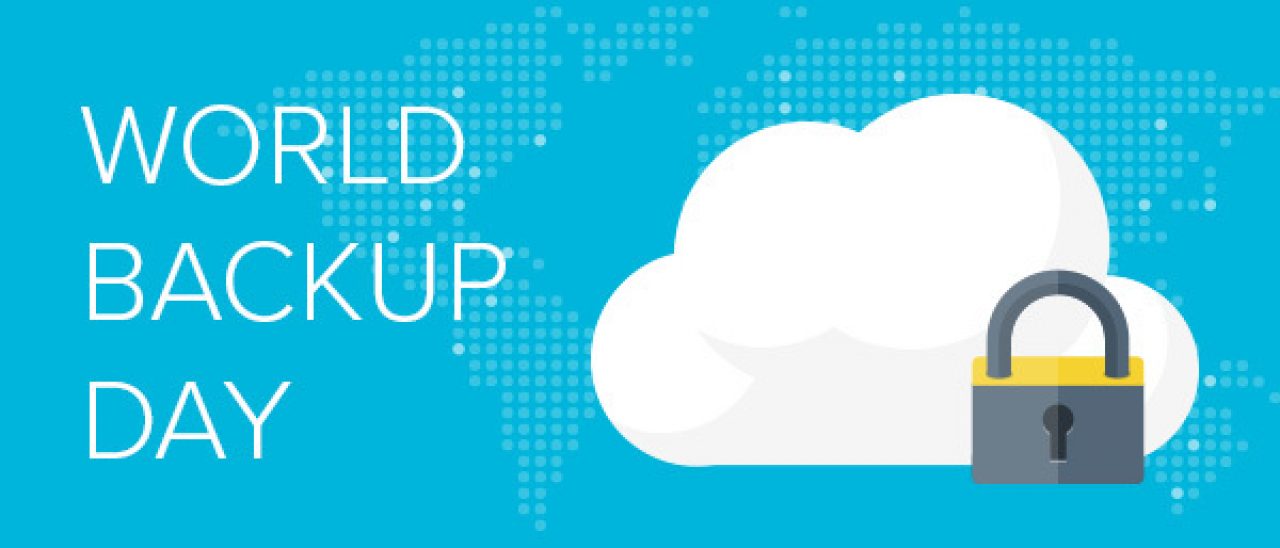3 Ways to Back Up Your Files: Easy, Medium & Hard
We've all been told to back up our files. This World Backup Day is the perfect day to put data security & valuable memories first. Here's how!
We've all been told a thousand times to back up our files. Storing everything on one device is asking for trouble -- and the risks increase every day. Not only do you have natural disasters and old-fashioned theft to worry about, but there are also digital dangers like ransomware (e.g. Cryptolocker) that will lock up your files forever. Backing up your files now is a no-brainer, but like many acts of prevention, most of us don't think about it until it's too late.
Well, no more! This World Backup Day is the perfect day to protect what matters. As they say, an ounce of prevention is worth a pound of cure. When it comes to data backup, you have many options, but we'd like to go over 3 ways to back up your files. They're ranked from hardest to easiest, based on the level of work required by the user.
The Hard Way: External Hard Drive
Before online backup came around, the only way to back up your files was to do it manually. A simple USB flash drive isn't enough to back up an entire computer, so you need an external hard drive to do the job right. Luckily, they function in much the same way, so if you've ever used a flash drive, you'll get along with an external drive just fine.
The Pros:
- Only requires a one-time investment, no monthly payments
- Secure from cyber hackers who target online storage
- Portable, can be plugged into any computer to transfer files easily
The Cons:
- Substantial up-front expense (depending on storage capacity, most external HDs range in cost from $50 to $400)
- Requires manual upkeep to transfer, save or delete files
- A physical device can be lost, stolen, or damaged by natural disaster (fire, flood, etc.)
Ideal User:
Prioritizes privacy above convenience. Could expect to be in situations where Internet access is not available, so the external HD would be used to access and share files.
The Medium Way: Online Cloud Storage
Here, it is important to make a distinction. Online cloud storage refers to services like Google Drive, Microsoft OneDrive and Amazon Cloud Drive. These services allow you to upload, store and share files easily via the cloud. Some may offer syncing options, but for the most part, you'll be choosing and updating the files you want to back up manually.
The Pros:
- No extra equipment needed
- Lots of services offer free or trial versions (e.g. Google Drive provides 15 GB for free)
- Your computer's files don't have to mirror your storage files, so you can save them to the cloud and delete them from your computer (and vice versa)
The Cons:
- Could require monthly payment
- Not all services provide syncing, and many will compress large files (like photos) to make them smaller / lower quality
- If you underestimate your needs, you might: 1) lose data after your free trial expires, 2) have to migrate data to another service or 3) have to spread data across multiple services
Ideal User:
Prioritizes convenience over privacy. Could expect to be in situations that require document collaboration (like work) or music / photo / video sharing (like social media).
The Easy Way: Online Cloud Backup
Lastly, you have online cloud backup services. You're likely familiar with a few of these: Carbonite, IDrive and SugarSync, just to name a few. Bask partners with Mozy to provide unlimited data backup, so we fit into this category as well. These services sync with your computer automatically to back up files securely in the cloud.
The Pros:
- No extra equipment needed
- Runs automatically in the background, so you don't have to spend time on upkeep
- Encrypts your files with military-grade security so no one can view them but you
The Cons:
- Requires monthly or annual payment
- Files are private, not built for collaboration or social sharing
- Files must stay on your computer to remain backed up -- if you delete a file from your computer, it will be erased from your backup as well
Ideal User:
Values security and convenience equally. Prefers to be "hands off," expects a high level of reliability and service from backup providers.
Any of these methods--external HD, online storage or online backup--will provide you with a valuable layer of protection. The one you choose will depend on your preferences and risk assessment. You could even use more method than one!
No matter which method you decide to use, take this World Backup Day as a chance to put your data security first. You'll sleep much easier knowing that precious family photos, important financial documents, and lengthy creative endeavors are safely stored and protected from loss.
]What happens to your family photos & financial documents after theft or damage? Bask can protect your data with secure online backup. Learn more when you call us today for a free question & answer session, or schedule one here: Speak with a Bask Technology Advisor

 Member Connect
Member Connect